SOUTH AMERICA AND THE ORIGINS OF PORTABLE SANITATION
As the portable sanitation industry began to expand in the United States in the 1960s and 1970s with the boom in commercial and residential building, commercial mining began to rapidly expand in South America in the 1980s. As worldwide demand increased, particularly in the copper market, South America experienced tremendous growth in mining, in miners, and in the need for portable sanitation. A new market for portable sanitation on a large scale began then and continues today. According to the AZO Mining publication, as of 2024, “Latin America accounts for around 40% of the copper produced globally, with Chile contributing 27%, Peru 10%, and Mexico 3%.”
Two companies pioneered the existence of portable restrooms in South America – one, a manufacturer, and one, an operator. Both contributed to the early growth of the industry, while both saw the benefit of becoming International Members of the PSAI.
“RESTROOM” COMPANY
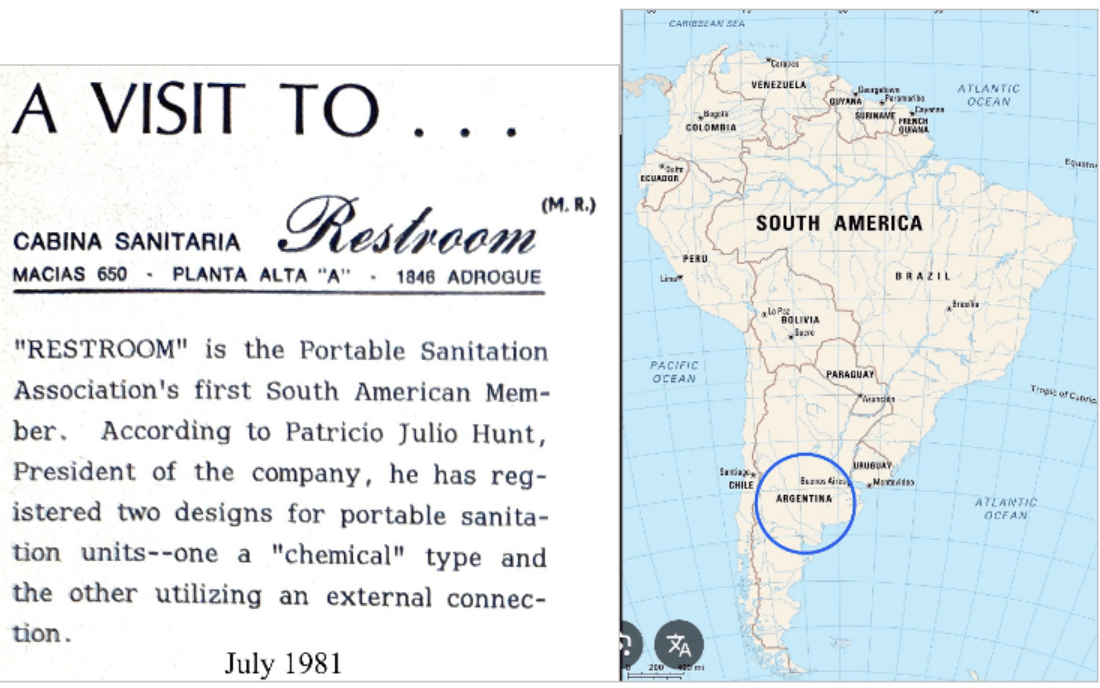
Patricio Julio Hunt founded this Argentinian company that manufactured portable sanitation units. “Restroom,” located in Adrogue, Argentina (in the Greater Buenos Aires area) on the southeastern coast of South America, became the PSAI’s first South American Member in 1981.
In a feature in the July 1981 Issue of “PSA in Action,” President Hunt described and portrayed the company’s two registered designs for portable sanitation units. Each “Restroom” unit has the inscription “Cabina Sanitaria” before the company name. This translation is “Sanitary Cabin” and emphasizes the sanitary aspects of these units.
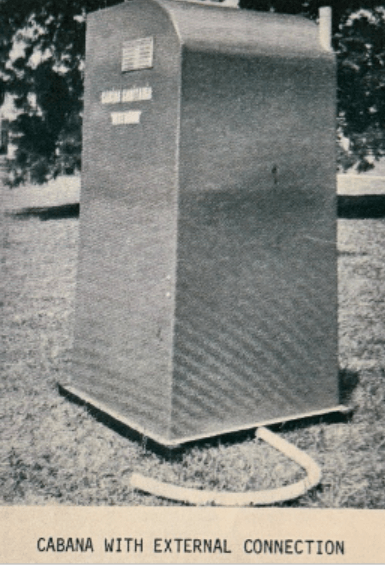
One unit from “Restroom” featured “a fiberglass cabana with external connection,” where waste would be collected in a holding tank.
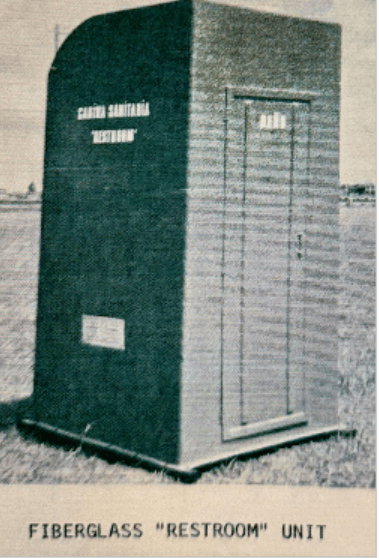
The other “Restroom” unit was also constructed of fiberglass and was described as a “chemical” type unit that was common in US markets beginning in the 1970s.
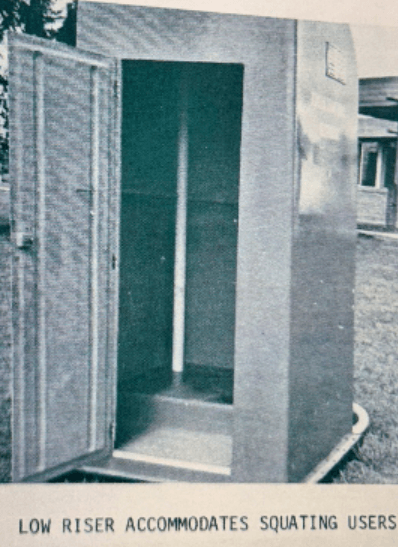
Interestingly, both units were designed for users to squat down to use them. Hunt writes that ‘this is the custom in most countries of the world.” He continues, “frequent replacement of expensive toilet seats is one problem that Argentine portable sanitation contractors don’t have to contend with!”
DISAL
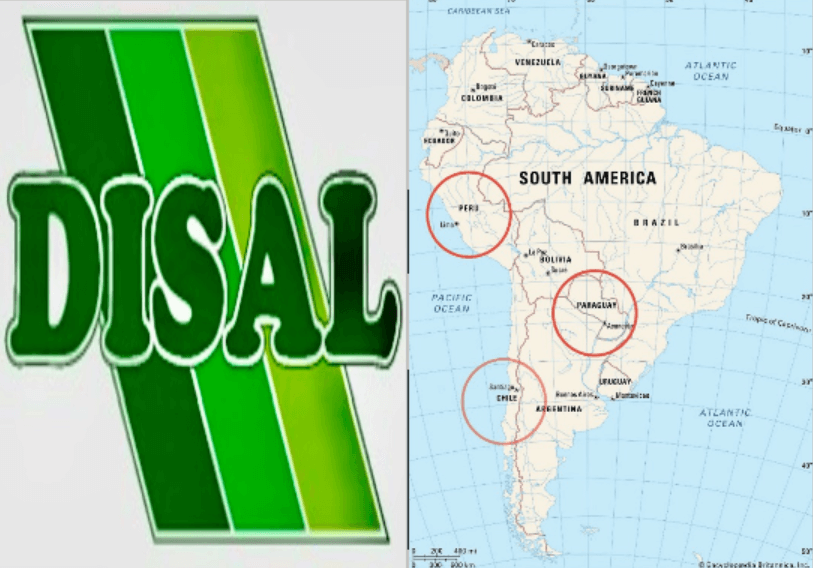
Located just outside Santiago, Chile, on the western coast of South America, Disal was founded by the Dieguez family as a solid waste company in 1969. We have two excellent accounts of the history of Disal and this company’s continuing impact on our industry. The “PSAI In Action” Newsletter from January/February 2009 featured a cover story on Disal. In addition, always helpful and dedicated PSAI Member, Juan Acosta, contacted Gonzalo Bustamante with Disal’s parent company, AMBIPAR, to obtain further information about Disal’s history.
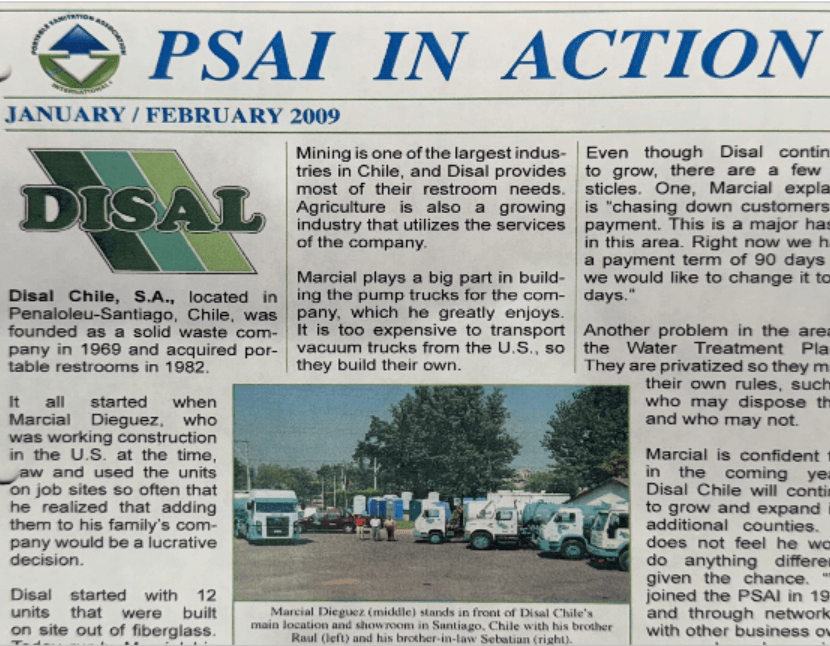
Here is Disal’s remarkable story:
Brothers Marcial and Alfonso Dieguez moved to the United States in the early 1980s. They began working in the construction industry, where portable restrooms were prevalent. Marcel stated that he used the units on job sites so often that he realized that “adding them to his family’s company would be a lucrative decision as this service did not exist back home.” Marcial and Alfonso bought a fiberglass portable unit and sent it to Chile, where brothers Raul and Victor Manuel started the portable restroom side of their family business. They began with 12 fiberglass units that slowly began appearing on job sites and at events both in and around Santiago. In 1985, DISAL joined the PSAI to become more familiar with the industry.
Gonzalo Bustamante relates that “during the 1990s, with the arrival of democracy in Chile, a law was established regulating sanitary conditions in the workplace, and this presented a great opportunity to expand the business.” Marcial and Alfonso returned from the US and, with brothers Raul and Victor Manual, and brother-in-law Sebastain Gilbert, formed a partnership named DISAL in 1993.
As DISAL grew, the company expanded into an ever-growing mining industry in Chile and then expanded into Peru and Paraguay. Agriculture became an important market segment for the company, as did special events. DISAL began to provide service for natural disasters, as according to Gonzalo, “earthquakes, tidal waves, floods, and avalanches” were all too common in this region. The company also incorporated environmental awareness as one of its guiding principles.
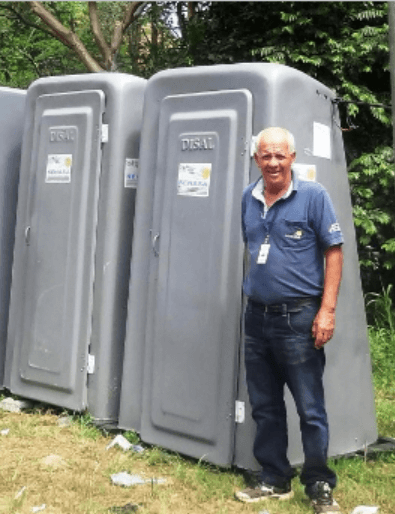
In the 2009 PSAI Newsletter article, Marcial stated that he played a large role in the building of the company’s pump trucks. “It is too expensive to transport vacuum trucks from the US, so we build our own.” This is a point that sometimes eludes US operators, as international shipping costs can be a major expense for those in other parts of the world.
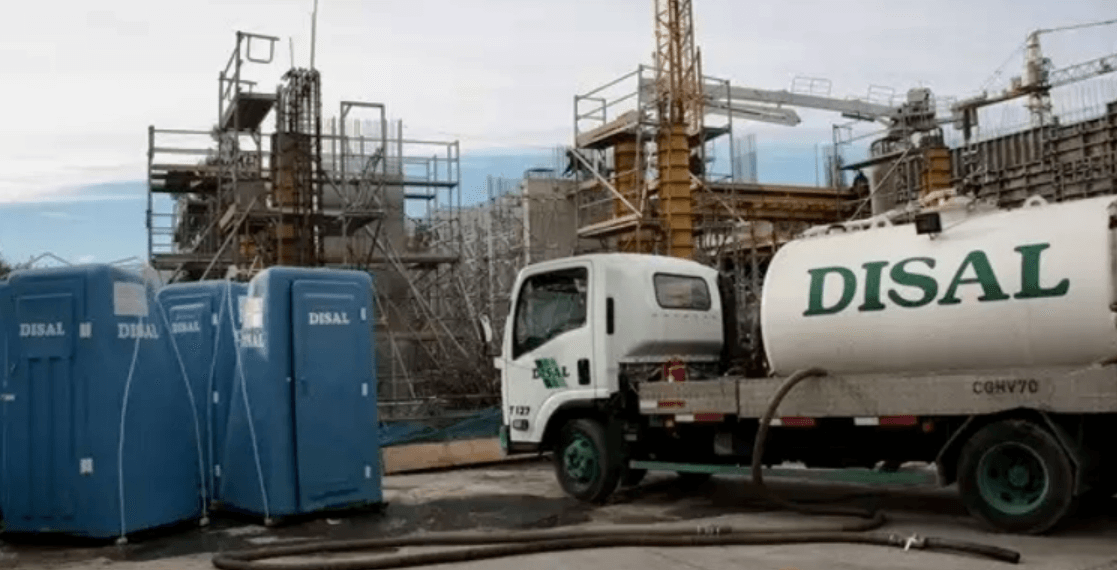
The PSAI cover story shares some amazing facts about DISAL as of 2009:
-
The company owned nearly 15,000 units, with half still made of fiberglass and the rest plastic.
-
They were the largest portable restroom provider in South America among some 50 competitors.
-
DISAL had 643 employees, 500 of whom were in the portable sanitation division.
-
Their 25 branches were spread across Chile, Peru, and Paraguay
-
In 1998, the company successfully handled the First Christian Youth Meeting, which required 1,000 units.
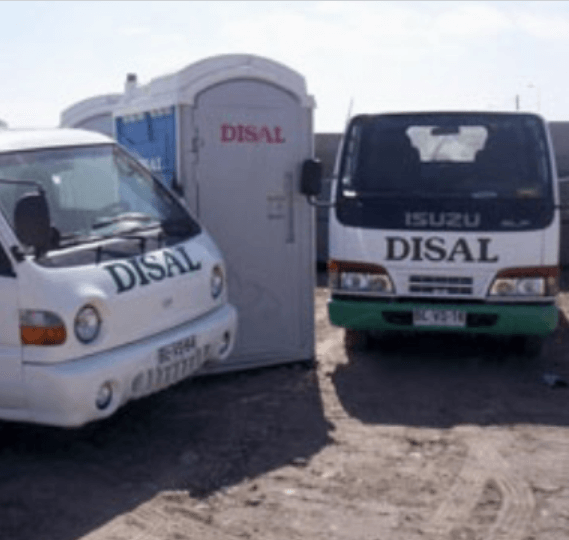
DISAL was involved in several significant special events after this 2009 story. The Dakar Rally endurance motor races came to South America in 2009 and were held there through 2019. Originally named the Paris-Dakar Rally when it was founded in 1979, these races are for cars, trucks, quads (four-wheeled carts), and motorcycles. Held in harsh and challenging terrains that attract large crowds, the need for portable sanitation is necessary, while the placement of units can be a challenge. DISAL meets these needs on an annual basis.
Pope Francis visited both Chile and Peru in 2018. DISAL provided hundreds of units at both huge events and did so in a professional and successful manner.
DISAL’s growth and success did not go unnoticed. In 2017, Australis Partners Fund acquired 67% of DISAL equity, and later in 2021, the Brazilian company AMBIPAR acquired the entire company. As of now, Gonzalo Bustamante reports that the company has some 20,000 units.
FINAL THOUGHTS
South America’s phenomenal growth in both mining and agriculture began to expand in the 1990s as the countries switched to a free market economy. As a result, the need for portable sanitation grew as well. With “Restroom” manufacturing units during this time and DISAL providing service, portable restrooms became commonplace, and the industry continued to grow and expand to reach its position today as being comparable to the industry in any other part of the world.
